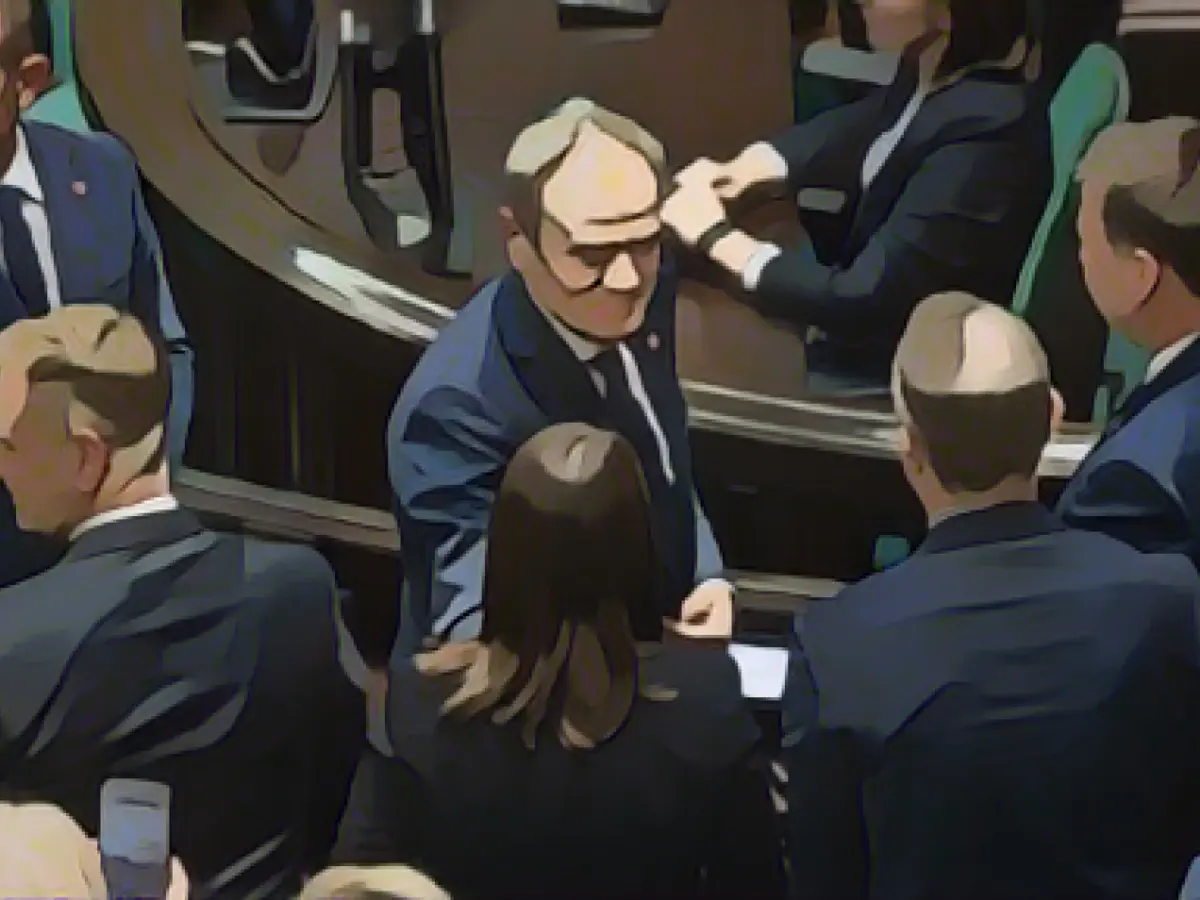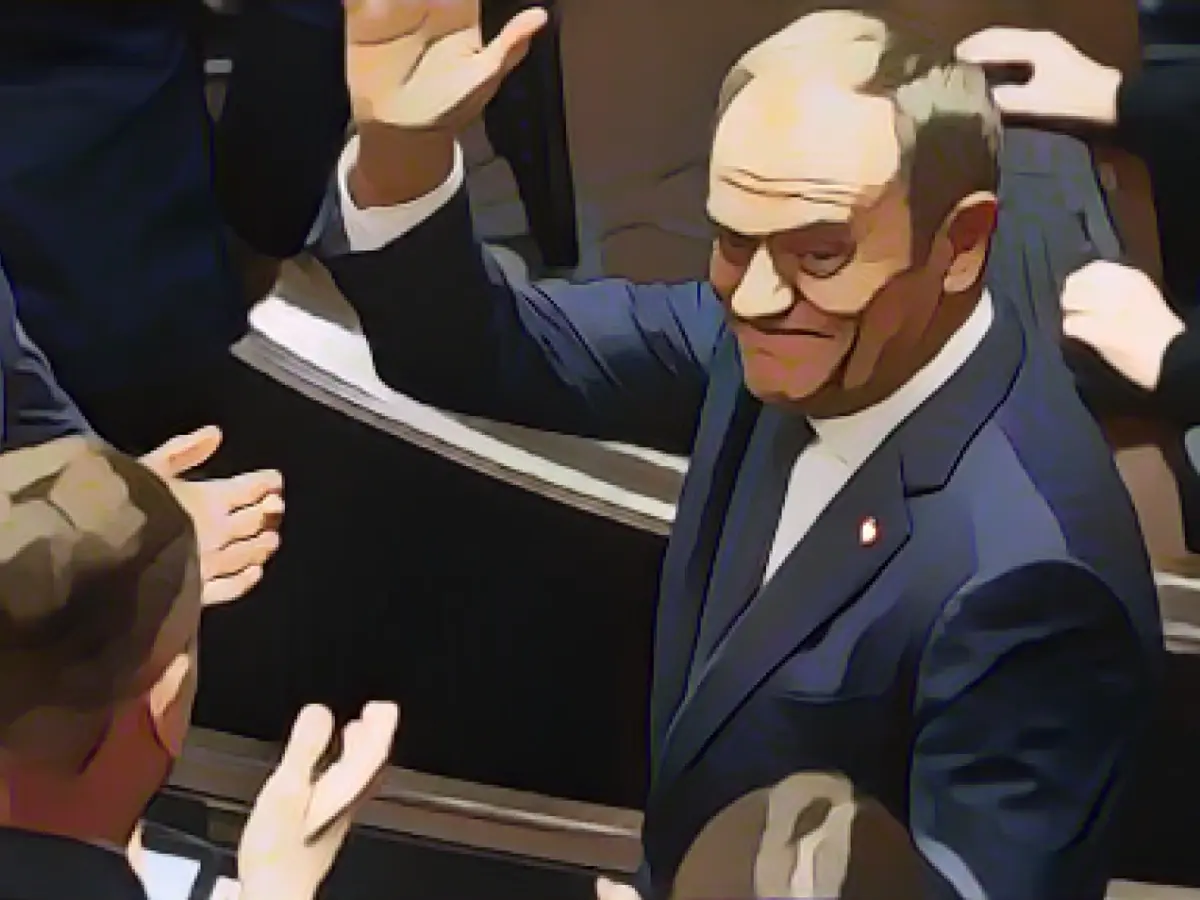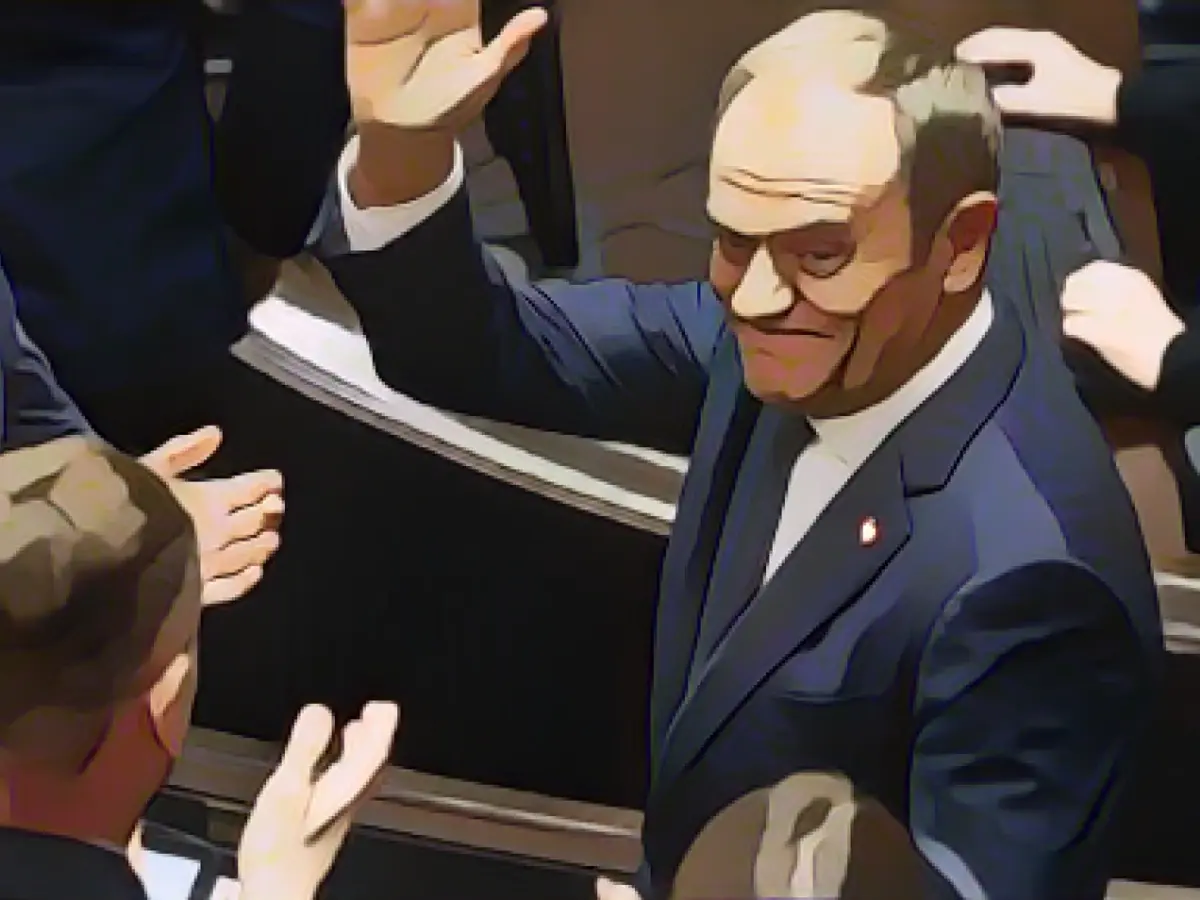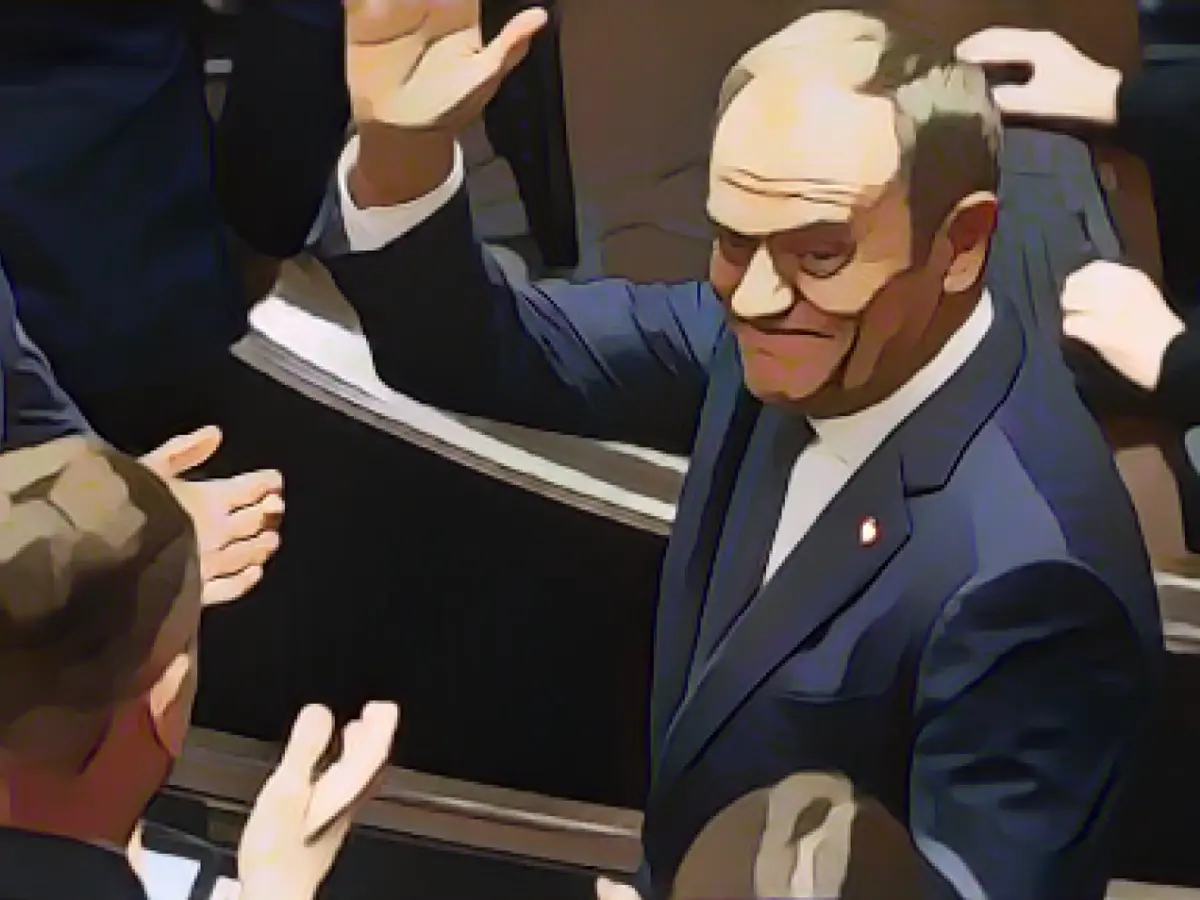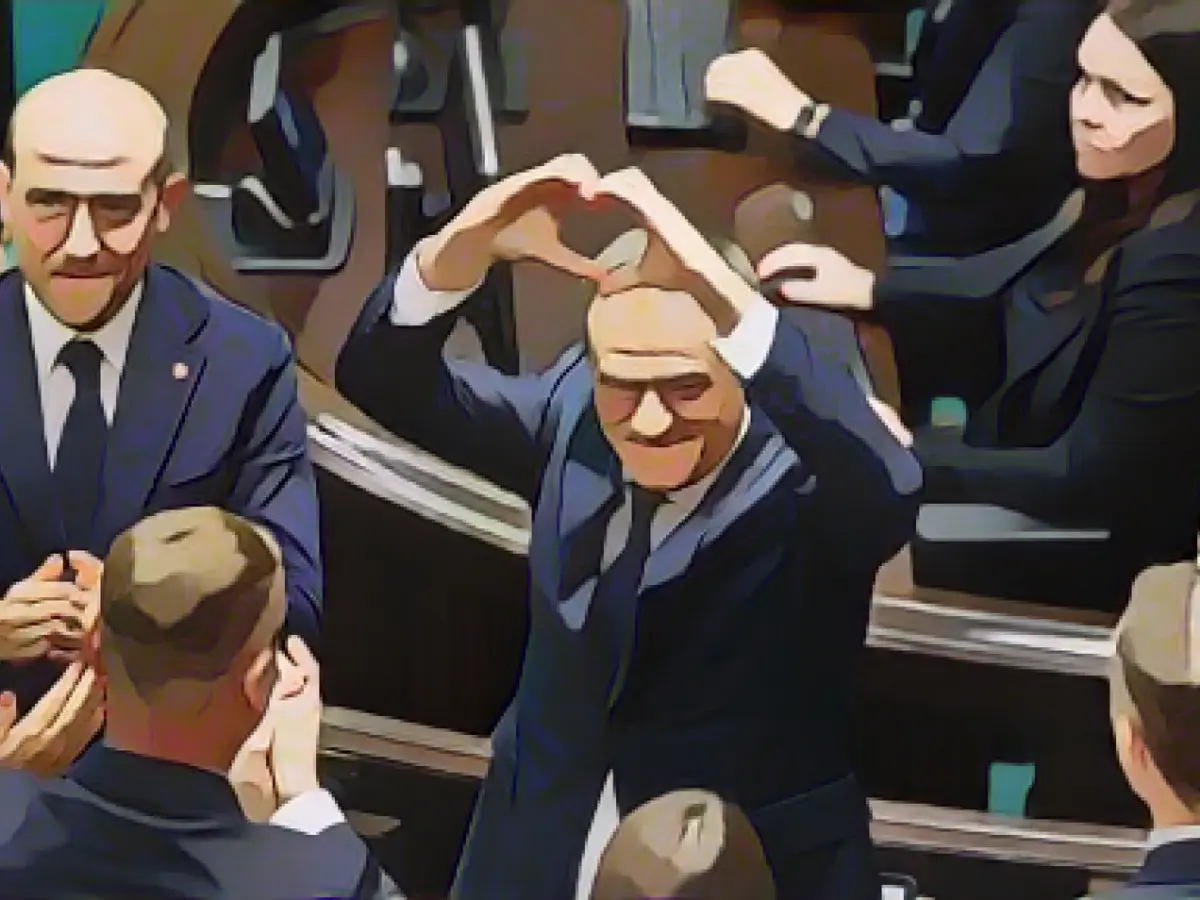In a surprising turn of events, Poland elected Donald Tusk as their new prime minister, marking a significant shift in the country's political landscape. Tusk, a seasoned politician and former EU Council President, emphasized the importance of a robust EU for Poland's strength during his coalition's presentation at the Sejm in Warsaw. He also spoke out in support of Ukraine, urging resolute action against Russia's aggression.
The election results saw the right-wing nationalist PiS party, led by Prime Minister Mateusz Morawiecki, emerging as the largest party, but failing to garner enough support for a government majority. Meanwhile, Tusk's liberal-conservative Civic Coalition, along with its two partners, secured a clear parliamentary majority following the October elections.
Upon Tusk's election, German Foreign Minister Annalena Baerbock congratulated her Polish counterpart, Radoslaw Sikorski, and expressed hopes for a new chapter in German-Polish relations. Tusk's background as Poland's former Prime Minister (2007-2014) and EU Council President (2014-2019) makes him a prominent figure in European politics, his pro-European stance distinctly contrasting with the PiS government's strained relations with Brussels.
In his elections speech, Tusk called for a unified global response against Ukraine's war with Russia. He also addressed the truck dispute at the Polish-Ukrainian border, promising swift resolutions to alleviate the strained freight traffic between the two countries. The blockade began after the EU eased transport conditions for Ukraine due to the Russian invasion, sparking complaints from Polish haulers about unfair competition.
Despite PiS's electoral success, President Duda, an ally of the party, initially handed Morawiecki the task of forming the government, further securing PiS's brief tenure in power. During this period, PiS appointed two of its former ministers to head state financial institutions and appointed new public prosecutors. The GERMAN ACTIVISTS SPEAK OUT article also mentions President Duda appointing around 150 new judges, drawing criticism from EU for the PiS's influence on the judicial system.
The EU-Council presidency is scheduled to begin in January 2025, with Poland at the helm. Hismetically titled 'Security, Europe!', Poland's presidency focuses on external security issues, aiming to bolster the EU's competitiveness and resilience in the face of threats. The Weimar Triangle, a political alliance, is also being revitalized with France and the new German government in a move to strengthen EU enlargement and integration efforts. A renewed focus is being placed on Ukraine's accession to the EU, with discussions on opening the first series of negotiation chapters centered on rule of law.
However, Tusk's coalition government faces challenges, as they balance the domestic interests of Poland with its commitment to the European Union and its support for Ukraine. The Political Impact of Tusk's Election also highlights domestic political complexities, including a three-party coalition government with a divided majority, an active president with veto powers, and a slow process of restoring the rule of law. Despite these challenges, Tusk's election and Poland's presidency heralds an exciting time for both Poland and the EU.
